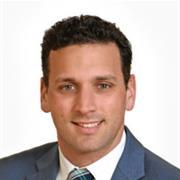
Michael L Alosco
Associate Professor Neurology
Dr. Alosco completed his undergraduate studies at Providence College and he earned his doctoral degree in clinical psychology, with a focus in neuropsychology, in 2015 from Kent State University. He completed his clinical internship in neuropsychology at the VA Boston Healthcare System. In 2015, Dr. Alosco was awarded a post-doctoral fellowship at the Boston University (BU) Alzheimer’s Disease (AD) Center (ADC) and BU CTE Center through the NIA-funded Alzheimer’s Disease Translational Research Training Program (T32AG036697). In 2016, Dr. Alosco transitioned to a National Research Service Award (NRSA) F32 from the National Institute of Neurological Disorders and Stroke to continue his advanced clinical research training at the BU ADC and BU CTE Center. In 2018, he became an Assistant Professor of Neurology at the Boston University School of Medicine.
Dr. Alosco’s research focuses on risk factors and biomarkers of neurodegenerative conditions, with a focus on AD and CTE. Dr. Alosco is particularly interested in the contribution of cerebrovascular disease to the clinical and neuropathological presentation of AD and CTE. He is additionally involved in research examining the relationship between exposure to repetitive head impacts and long-term neurological consequences. He is mentored at the BU AD and CTE Center by Robert A. Stern, Ph.D., and Ann C. McKee, M.D.
In August 2018, he received a five-year K23 Award from the National Institutes of Health’s National Institute of Neurological Disorders and Stroke (NINDS). He will use MRI data and biomarkers to examine patterns of white matter alterations in former NFL players compared to healthy individuals as well as those with Alzheimer’s disease dementia. He will do so by leveraging ongoing studies at BUSM, including the NINDS-funded DIAGNOSE CTE Research Project and the National Institute on Aging (NIA) funded BU Alzheimer’s Disease Center (BU ADC). The K23 Award will additionally provide Dr. Alosco with advanced and cutting-edge training in CTE to facilitate his progression as an independent clinical neuroscientist.
Google Scholar- Expertise
- Diseases of the Nervous System, Learning & Memory, and Molecular & Cellular Mechanisms
- Departments (Colleges)
- Anatomy & Neurobiology (MED)